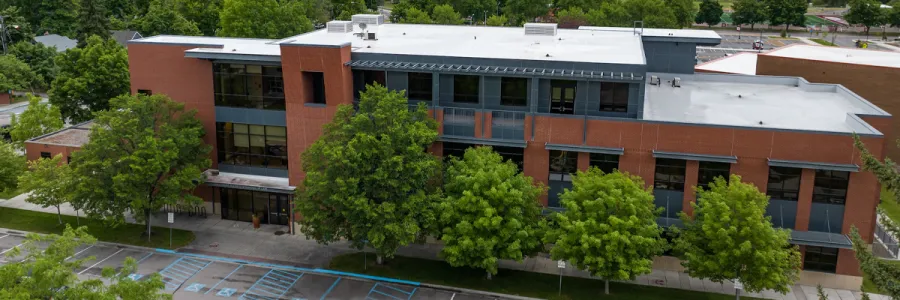Competition Teams

The School of Law sponsors several competition teams selected by a competitive process. Montana is a consistent contender both regionally and nationally. As one of the smallest law schools in the nation, we are proud of our teams' outstanding performance in interscholastic competitions. Our students consistently rank as best oralists and best briefs at competitions.
We owe our success to the dedication of our coaches, the quality of our students and our unique curriculum. Thank you to our generous donors for supporting these competition teams.
-
Teams from the Alexander Blewett III School of Law at the 91次元 have competed in the for more than 25 years.
Negotiation Competition encourages interest-based negotiation as an alternative dispute resolution mechanism. Team members are selected annually during an intraschool competitive process in the fall of each academic year. Qualifying team members practice dozens of simulated scenarios in preparation for northwest regional competition in early November. Top-ranked teams advance to national competition held in conjunction with ABA Mid-Winter Meeting in February.
Team members must also be members of the Law Student Division of the American Bar Association to be eligible to compete. Blewett School of Law students may receive academic credit for participation on the Negotiation Team.
-
In the competition, two-person teams argue cases on topics chosen from among a variety of legal issues involving Native American rights and concerns. UM team members are selected by a competitive process. Members must be second or third year law students in good academic standing and have taken or be enrolled in Indian Law. This competition has been approved for academic credit.
-
The Environmental Law Moot Court Team competes in the . The competition tests oral and written advocacy skills in appellate court litigation. The fact pattern drafted each year involves timely issues of national importance to the practice of environmental law. Recent topics have included illegal dumping of hazardous waste, vicarious criminal liability of corporate officers for their company's environmental crimes and commerce clause limits on water pollution regulation.
This competition has been approved for course credit.
-
This competition, the oldest and largest in the country, is open only to third-year students, six of whom will be selected. They attend a day-long training session right before school starts in August and devote a significant amount of time during fall semester to writing the brief and practicing oral argument. Despite the time and effort required, students who participate consistently describe National Moot Court as the most valuable experience they had in law school because of the skills they developed.
National Moot Court involves briefing and arguing a case, generally concerning statutory or constitutional issues, in the United States Supreme Court. Each three-student team writes a brief that is due in mid-October. Then the teams practice their oral arguments about four times a week until the Northwest Regional Competition in November. The top two teams from each of the country’s 15 regional competitions advance to the week-long National Competition, held in January or February at the New York City Bar Association in mid-town Manhattan, which sponsors the competition in conjunction with the .
This competition has been approved for academic credit.
-
The UM National Trial Competition Team (NTC) competes in the National Trial Competition sponsored by and the . The team was created to stimulate student interest in developing trial advocacy skills and to encourage law schools to teach trial advocacy skills.
Team members are selected annually during an intraschool competitive process in the fall of each academic year with the competition taking place in the spring semester. Typically, there are a 2L team and a 3L team of students in the roles of trial counsel and four law students serving as witnesses for the two teams. TYLA distributes the regional competition problem in late November. Regional competitions typically take place in February.
This competition has been approved for course credit.
